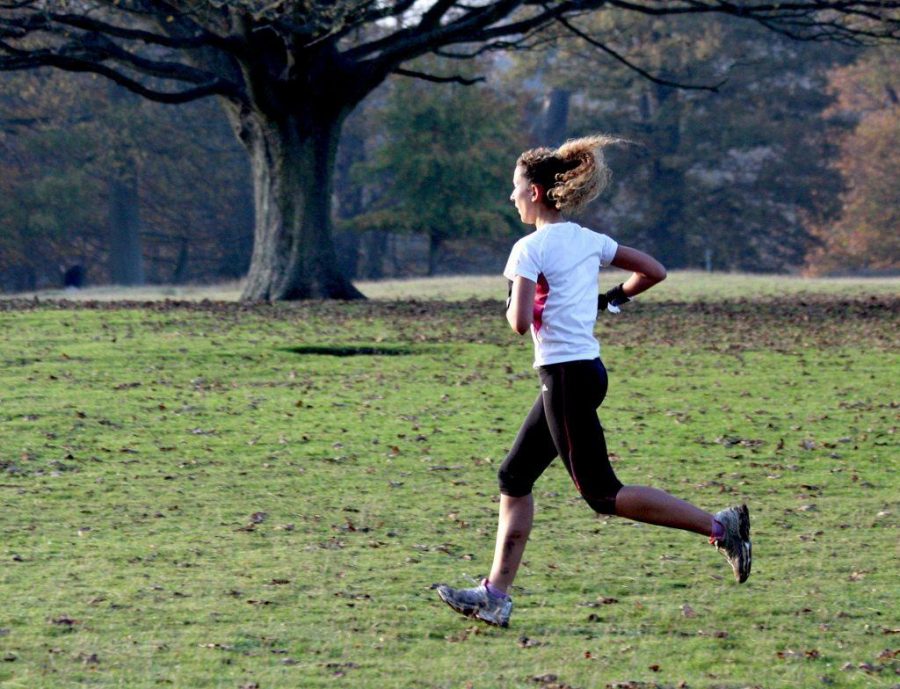To do or not to do is a question people ask themselves multiple times a day. How are these decisions made? How often is a situation assessed and the more difficult way is chosen?
More often than not, people search for and prefer the easy answer. Work is difficult and can stretch us in new ways, hence its avoidance. A common saying, “Work smarter, not harder,” echoes in our brains, and we think that smarter means easier. Perhaps easier is not the answer.
Recently an interesting conundrum has presented itself in my life: the gym has increased my laziness. This sounds odd, I know. Going to the gym is considered the opposite of laziness. I feel my gym attendance has weakened my motivation and desire for a more difficult task, however. My ideal schedule is to workout six days a week: three days in the gym and three days running outside with my dog. Colder weather has recently crept up, which makes the gym more appealing than running outside in the cold and wet environment. I also find lifting in the gym less mentally challenging than running four or more miles, so the gym gives my self-discipline a break as well.
Now, one could reason that if I am achieving the same thing in a less difficult way, then it isn’t a big deal. A lot of times people are looking to get the bare minimum done and whatever is easiest and simplest should do just fine. But what if all these small choices are shaping how I approach life? My choice to go to the gym instead of running sends my brain and body a message that I can escape extra exertion by avoiding running. My brain and body feel rewarded because going to the gym is a good and productive activity, which makes me want to keep doing it. By choosing the gym I am suffering the loss of extended cardiovascular exercise, which makes little difference if I am not running, but when I do go for a run, eventually I’ll feel the loss of stamina quickly. Some of you are thinking, “Just run at the gym,” but I do not like running on a treadmill, so gyms are what I use for strength training.
My dog is also affected by my decision to go to the gym. He loves running and it is good for him. We don’t go on walks, we go on runs, and so he gets excited every time he sees me grab his leash. I still take my dog to the park to play fetch each day, especially if we don’t go running — again, arguably achieving the same purpose. But actually, he is slowly losing his stamina by my removal of an activity he truly loves.
Here are the consequences of me going to the gym and not running: decreased cardiovascular exercise for my dog, lack of self-discipline, loss of an activity that my dog and I enjoy and cognitive dissonance regarding what I say I want to do and what I actually end up doing.
The small choices make an impact throughout life. If someone consistently consumes unhealthy options, their body slowly starts to lack the nutrition necessary for it to thrive. If someone consistently does yoga, they become more flexible. Running teaches me discipline and mental grit; if I continue to choose the gym, I believe these things will continue to decline. As we allow justification to rule our decisions, it becomes easier and more satisfying to continue down that road.
Maybe you are thinking, “Okay cool, so go for more runs then. Big deal.” This actually has pertinence in our lives in so many ways. In the article, “Why I Always Choose the Harder Way” by Philip Cutler, President and CEO at GradeSlam, he talks about the importance of choosing a challenging path. Cutler believes that choosing the easier path is fine if you have no desire to progress, but not if there is a hunger for something more. He is right. Some people have a deficit for drive and motivation, so the easy choice is fine for them; but for those who are always trying to achieve more, the back-breaker option will bring most success. Cutler mentions that this type of mindset will set you apart from others. This philosophy applies to so many things: getting into graduate school, getting a job and even impressing a significant other.
Cutler also says, “We can always work harder.” This philosophy has come up in my lifetime and time again. Maybe there are people with talent that I lack, but there is never an excuse for not out-working someone. Whenever I do less than I desired, I think, “Well, did I work my very hardest?” If I did I can feel satisfied, but if not, there is only one person to blame: myself. As Tim Tebow says, “Hard work beats talent when talent doesn’t work hard.”
Often we feel that there are many things out of our control, and yet, we actually hold the keys to our own fate. Even when we cannot control our situations, we can control our reactions. Comfort and challenge enter your life when the realization of your power settles into your attitude and mindset. The more difficult path is often the more rewarding path. Don’t be afraid to walk down it — what awaits will soothe the pain of getting there.
letters@ustudentmedia.com
@TheChrony


